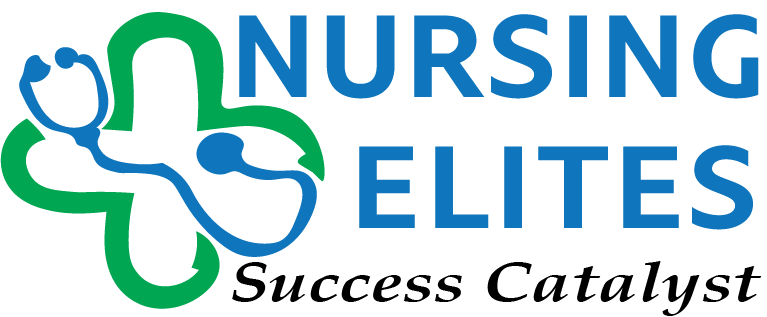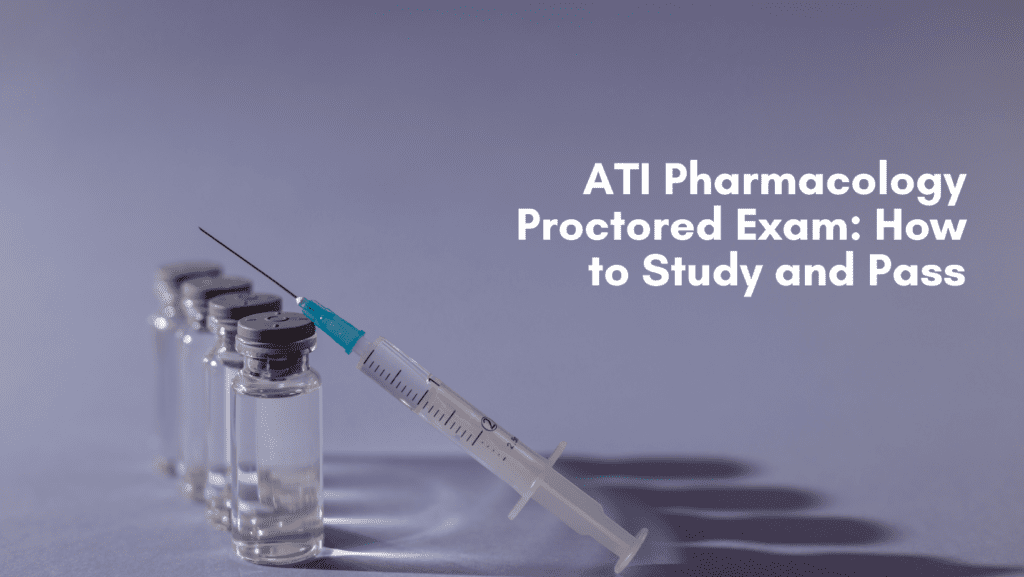The ATI pharmacology proctored exam gauges a student’s understanding of the various pharmacological methods and their application in a clinical setup. Pharmacology is one of the most dreaded subjects in nursing school. It is, however, a core subject since it teaches vital skills like proper dosage administration. Our pharmacology exam-help experts discusses how to do the exam for you remotely without being getting caught. They also share useful strategies to help you ace your ATI pharmacology proctored exam.
Tips and Strategies on How to Pass the ATI Pharmacology Proctored Exam
Use our Services to Pass the ATI Pharmacology Proctored Exam
You can still pass the test using our services. We install a special software on your computer, which helps us bypass the proctoring system. From there, we will do your exam remotely and undetected, guaranteeing an A. However, you should be in front of your computer, act normally, and keep a straight face to avoid unnecessary suspicion. Learn more on Do My Proctored Exam for Me on our service page.
Other ways of doing the ATI pharmacology exam include
Revise Routinely – Get Your Study Materials from Us.
Sometimes, your class notes aren’t enough. You need to go the extra mile in revising to boost your chance of succeeding in the proctored exam. If your biggest worry is lacking the right revision material, we also have that covered. We take pride in offering up-to-date and reliable revision resources that adhere to set academic standards. Once you get your hands on these reading materials, it’s time to put all your revision energy into the areas you feel need more preparation.
Master All the Topics to Be Evaluated
For proper preparedness for the ATI pharmacology proctored exam, students must understand all the topics they will most likely be examined. Topics under pharmacology are quite broad and range from:
- Drug classifications – it helps students familiarize themselves with various medications in the nursing practice, e.g., antibiotics, antidepressants, antidiabetics, antihypertensive, anticoagulants, analgesics, diuretics, etc.
- Pharmacokinetics – it covers how drugs move within the body, i.e., through absorption, distribution, metabolism, or excretion.
- Pharmacodynamics – it explains how drugs affect the body, i.e., through receptor binding, agonists/antagonists, or via a dose-receptor relationship.
- Drug administration – it touches on calculating dosages and appropriate routes of administration, such as oral, IV, IM, and subcutaneous administration.
- Drug interactions – the topic touches on drug-drug and drug-food interactions and covers the importance of the right ‘environment’ for optimal results.
- Adverse drug effects and side effects – it covers the balance between the benefits and risks of drugs used in treatment.
- Patient assessment – it teaches regular monitoring of patients and documentation of the observations and their responses.
- Patient education on safe drug usage – it educates the patient on prescribed dosage schedules, handling and storing the medications, etc.
- Nursing care implications – it oversees the importance of nurses as agents who bridge the gap between doctors or pharmacists and patients.
- Special populations – this topic teaches about the range of pharmacological differences in specific populations, e.g., pediatrics.
- Herbal remedies and therapeutic therapies – it teaches about the commonly used remedies and therapies and how they interact with conventional medicine.
- Ethical and legal considerations – it covers patient consent and compliance with various legal regulations concerning medicine administration.
- Critical thinking. This teaches and encourages the application of the student’s critical thinking skills in different setups.
Take Practice Tests
Practice tests are powerful tools for helping students excel in the ATI pharmacology proctored exam. These tests help students in the three ways listed below:
1. They help students familiarize themselves with the exam format. A student knows how many questions to expect.
2. They help the student as well as their test-taking skills like time management.
3. They help the student assess their knowledge.
As a result, the students figure out, on time, what their weak areas are, and they get to prioritize them in their study plans before the exam day.
Relevant Preparations for the ATI Pharmacology Proctored Exam
Passing your ATI pharmacology proctored exam requires lots of dedication, practice, time, and remediation on the student’s end. Mastery of the different pharmacological concepts guarantees excelling on the proctored exam and ensures that you can confidently provide care to your future patients.
ATI Pharmacology Proctored Exam: Conclusion
ATI pharmacology proctored exam gives students the first step into the nursing profession. Although it is one of the most challenging exams in nursing school, its significance is the foundation of drug administration in a clinical setting. We help you cover every essential topic you need to know in the nursing education program and how to apply it in the exam. You can also contact our support for further guidance on how to help you take your ATI pharmacology proctored exam.




